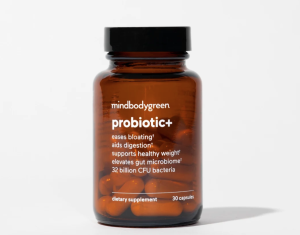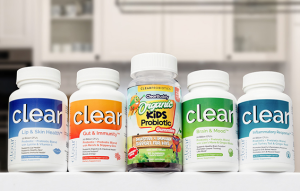Table of Contents
ToggleProbiotic strains are essential allies in our quest for optimal digestive health, offering a range of benefits that support our overall well-being.
As we dive deeper into the world of these beneficial microorganisms, it becomes clear that selecting the right strains can significantly enhance our gut microbiome.
This guide will explore the various probiotic strains, highlighting their specific benefits and practical tips on how to integrate them into your daily routine for a healthier digestive system.
Key Takeaways:
- Probiotics are beneficial microorganisms that promote digestive health.
- Choosing the right probiotic strains is essential for targeting specific digestive concerns.
- Lactobacillus strains have various health benefits, including improved gut microflora and immune support.
- Bifidobacterium is crucial for maintaining gastrointestinal health and oral hygiene.
- Streptococcus strains can improve gut-brain communication and oral health.
- Bacillus strains have a broad-spectrum effect on gastrointestinal disorders.
- The effectiveness of probiotics depends on the specific strains and proper dosage.
Beneficial bacteria greatly reduce the risk of antibiotic-associated diarrhea, a common issue for antibiotic users.
They also effectively manage Clostridium difficile associated diarrhea, a severe form following antibiotic use.
Let’s dive deeper into the benefits of specific probiotic strains and how they can transform your gut wellness journey.

Understanding Probiotic Strains and Their Importance
Probiotic strains play a vital role in promoting digestive health by delivering health benefits when consumed in adequate amounts.
These live microorganisms, primarily bacteria, are naturally present in the human gut and have undergone extensive research for their effects on the body.
Each strain provides unique benefits and effects on the body, essential for targeting specific digestive concerns effectively.
Research has demonstrated that certain probiotic strains can enhance the gut microbiome—the collection of microorganisms in our digestive system.
Additionally, probiotics support the immune system by protecting the body against harmful bacteria and infections.
Strengthening the immune system in this way helps to improve digestive function and contributes to overall wellness.
By understanding which specific strains are beneficial for digestive health, you can optimize the benefits of probiotics.
Choosing the right probiotic strains enables you to nurture a healthy gut microbiome, bolster your immune system, and enhance your overall digestive wellness.
The Benefits of Lactobacillus Strains for Digestive Health
Probiotic strains from the Lactobacillus genus, commonly found in the vagina and gastrointestinal tract, provide numerous health benefits, especially for digestive wellness.
Lactobacillus strains markedly improve overall health by enhancing gastrointestinal microflora and boosting the immune system.
They also support vaginal health and manage serum cholesterol levels.
You can greatly enhance your digestive health by incorporating Lactobacillus strains into your daily routine.

Specific strains like Lactobacillus acidophilus, Lactobacillus bulgaricus, and Lactobacillus reuteri have shown promising results in promoting a healthier gut and body.
| Lactobacillus Strain | Health Benefits |
|---|---|
| Lactobacillus acidophilus | Improves gut microflora and supports a healthy immune system |
| Lactobacillus bulgaricus | Enhances digestive health and assists in the breakdown of lactose |
| Lactobacillus reuteri | Supports vaginal health and may help reduce serum cholesterol levels |
By adding Lactobacillus strains to your daily routine, you can experience the positive impact on your digestive health and overall well-being.
Incorporating Lactobacillus strains through probiotic-rich foods or high-quality supplements can enhance your gut microflora and boost your immune system.
The Role of Bifidobacterium in Digestive Health

Probiotic strains like Bifidobacterium play a crucial role in maintaining a healthy gut and supporting our digestive health.
Bifidobacterium is found predominantly in the gastrointestinal (GI) tract and helps balance our digestive system.
This beneficial bacterium, which also occurs naturally in breast milk, underscores its importance from infancy.
As we grow older, the natural levels of Bifidobacterium in our bodies tend to decline, potentially impacting our digestive health.
To maintain optimal GI function, it’s essential to supplement our diet with this probiotic powerhouse.
Studies have consistently demonstrated the wide-ranging benefits of Bifidobacterium, especially Bifidobacterium bifidum, for digestive health.
Research shows these species significantly improve oral health by suppressing periodontal pathogens and preventing dental caries, thus protecting our teeth from decay and damage.
The presence of Bifidobacterium not only boosts oral and digestive health but also plays a pivotal role in our overall well-being.
Include Bifidobacterium-rich foods in your diet or take a high-quality probiotic supplement to boost your digestive health.
Streptococcus Strains and Their Impact on Digestive Health
Probiotic strains from the Streptococcus genus, including both beneficial and pathogenic species, have demonstrated significant promise in promoting digestive health.
Two strains in particular, Streptococcus thermophilus and Streptococcus salivarius, have been the focus of extensive research for their positive effects.

Streptococcus thermophilus enhances tangy flavors and supports gut-brain communication in fermented milk products like kefir.
This interaction can improve your control over emotions and sensations, boosting both your digestive health and overall well-being when you incorporate this strain into your diet.
Streptococcus salivarius, another beneficial strain, plays a vital role in maintaining oral health.
It suppresses the growth of harmful periodontal pathogens and promotes healthy teeth.
You can achieve optimal oral health and enhance your digestive wellness by ensuring a balanced presence of Streptococcus salivarius in your mouth.
Use fermented milk products or probiotic supplements with Streptococcus thermophilus and Streptococcus salivarius to improve your digestive health.
These strains provide a straightforward and effective way to support your journey towards optimal digestive health.
The Benefits of Bacillus Strains for Digestive Health
Probiotic strains from the Bacillus genus offer a variety of benefits for digestive health and are widely recognized for their safety and effectiveness in treating gastrointestinal disorders.
Strains like Bacillus subtilis, Bacillus clausii, Bacillus coagulans, Bacillus indicus, and Bacillus licheniformis have undergone extensive research, revealing their positive impacts on digestive wellness.
These Bacillus strains enhance gut health by modulating the microbiome, supporting proper digestion, and improving overall digestive functions.
When you introduce these beneficial bacteria into your gut, they help restore balance and ensure optimal gastrointestinal health.
Their broad-spectrum action makes Bacillus strains a valuable part of any comprehensive gut health regimen.
They offer multi-level support, ideal for addressing conditions like irritable bowel syndrome, inflammatory bowel disease, and other digestive issues, thereby promoting improved digestive functions.
A standout feature of Bacillus strains is their robust nature, enabling them to survive the acidic environment of the stomach.
This resilience is due to their protective outer shell, which ensures their survival and allows them to reach the intestines where they are most effective.
Additionally, these strains are adept at producing enzymes that enhance digestion, boost nutrient absorption, and regularize bowel movements, which helps relieve symptoms like bloating, gas, and irregular bowel habits.
Incorporating Bacillus strains into your digestive health plan can significantly enhance the diversity of your gut microbiome and boost your overall digestive function and wellness.
They provide a reliable and effective approach to maintaining a healthy gut.

The Importance of Probiotic Strains and Dosage
Each strain offers unique benefits, so selecting a probiotic supplement that targets digestive health with the right strains is key.
The dosage is equally important, as research shows that higher dosages, generally between 3-10 billion Colony Forming Units (CFU) per day, tend to be more effective than lower ones.
When you’re in the market for a probiotic supplement, aim to choose one that not only provides a robust number of CFUs but also ensures high-quality probiotic strains.
Quality matters because it guarantees the viability of the strains, enabling them to deliver their full health benefits to your digestive system.
By carefully choosing the appropriate probiotic strains and dosages, you can maximize the health benefits for your digestive system and overall well-being.
Incorporating Probiotic-Rich Foods into Your Diet
Probiotic strains play a crucial role in maintaining gut health, and while taking supplements can be effective, integrating probiotic-rich foods into your diet is equally important.
Foods like kefir, kombucha, sauerkraut, yogurt, tempeh, apple cider vinegar, raw cheese, miso, and olives are fantastic sources of these beneficial bacteria.
For optimal gut health, try to include 2-3 servings of these foods in your daily meals.
Incorporating these foods into your diet not only enriches your meals with natural probiotics but also supports your digestive health in a wholesome way.
Let’s take a closer look at some of the popular probiotic-rich foods and how they can benefit you.
| Probiotic-Rich Foods | Description |
|---|---|
| Kefir | A fermented milk drink that is rich in probiotics and is known to support gut health. |
| Kombucha | A fizzy, fermented tea that contains live cultures and can aid digestion. |
| Sauerkraut | Fermented cabbage provides probiotics and promotes a healthy gut. |
| Yogurt | A dairy product that contains live cultures of bacteria, such as Lactobacillus and Bifidobacterium, that can benefit your gut flora. |
| Tempeh | A fermented soy product that is high in probiotics and protein, making it a great addition to your diet. |
| Apple Cider Vinegar | Although not a direct source of probiotics, apple cider vinegar can aid digestion and promote a healthy gut environment. |
| Raw Cheese | Certain types of raw cheese, like cheddar and gouda, contain live cultures that can support gut health. |
| Miso | A traditional Japanese seasoning made from fermented soybeans that adds probiotics to your meals. |
| Olives | Fermented olives contain probiotics and can contribute to a healthy gut. |
Probiotic strains found in a variety of foods can diversify your gut microbiome and promote a healthy digestive system when included in your daily meals.
It’s important to mix these foods into your diet to enjoy the full benefits.
If you find it challenging to consume 2-3 servings of probiotic-rich foods each day, consider adding a probiotic supplement to your routine.
This can help ensure you’re getting enough beneficial bacteria.
Always consult with your healthcare provider to tailor the best approach to meet your specific health needs and goals.
The Impact of Probiotics on GI Conditions
Probiotic strains have been extensively studied for their effects on various gastrointestinal (GI) conditions, revealing their significant role in enhancing digestive health.
Beneficial bacteria greatly reduce the risk of antibiotic-associated diarrhea, a common issue for antibiotic users.
They also effectively manage Clostridium difficile associated diarrhea, a severe form following antibiotic use.
Moreover, probiotic strains offer promising benefits for individuals with ulcerative colitis by improving remission rates and easing symptoms.
Ulcerative colitis, a chronic inflammatory bowel disease affecting the colon and rectum, can see marked improvement when probiotics are included in daily routines, helping to reduce inflammation and enhance life quality.
Probiotics also positively affect irritable bowel syndrome (IBS), a prevalent functional GI disorder.
They can alleviate symptoms like abdominal pain, bloating, and irregular bowel habits.
However, the effectiveness of probiotics can vary based on the specific strains used and individual responses.
It’s wise to consult a healthcare professional or a registered dietitian before starting any probiotic regimen, especially if you have an existing GI condition, to ensure you choose the best probiotic strains for your needs.
Safety and Regulatory Issues of Probiotics
When selecting probiotic strains, safety should always come first.
Probiotic strains are typically safe for most individuals, but making informed choices about the products you select is crucial.
To ensure the quality and safety of your probiotics, opt for products from trusted sources that have undergone third-party testing.
You can find probiotics in various forms, including food and dietary supplements.
In the United States, the Food and Drug Administration (FDA) regulates dietary supplements, including probiotics.
However, enhancing quality control during the manufacturing process is necessary to ensure these supplements are potent and effective.
When choosing an over-the-counter (OTC) probiotic product, consider the third-party analysis results.
These results offer valuable insights into the quality, potency, and safety of the probiotics, boosting your confidence in your selection.
As a responsible consumer, always prioritize quality control and safety when incorporating probiotics into your daily routine.
This approach helps you maximize the benefits of these beneficial microorganisms while safeguarding your health.

Conclusion
Probiotic strains play a crucial role in maintaining digestive health and promoting overall wellness.
Focus on specific strains like Lactobacillus, Bifidobacterium, Streptococcus, and Bacillus to enhance your digestive system with unique benefits.
Optimize your gut wellness by incorporating probiotic-rich foods into your diet and choosing high-quality supplements to achieve optimal health.
Enhancing your wellness journey involves taking good care of your gut.
A healthy digestive system improves nutrient absorption, supports balanced immunity, and reduces digestive disorder risks.
Prioritize your digestive health by choosing to consume probiotic-rich foods such as yogurt, kefir, or sauerkraut, or by selecting a reliable probiotic supplement.
For the highest efficacy, select supplements that boast a variety of probiotic strains and a sufficient number of colony-forming units (CFU).
Choosing products from trusted brands that undergo third-party testing for quality and safety is also crucial.
By choosing the right probiotic strains and committing to a healthy lifestyle, you can improve your digestion and enhance overall well-being.
FAQ
What are probiotics?
Probiotics are live microorganisms that provide health benefits to the host when consumed in adequate amounts.
Why are probiotic strains important for digestive health?
Different probiotic strains have different effects on the body, and specific strains have been proven to enhance the gut microbiome, support the immune system, and improve overall digestive function.
What are the benefits of Lactobacillus strains for digestive health?
Lactobacillus strains have various health benefits, including improving gastrointestinal microflora, enhancing the immune system, and reducing serum cholesterol levels.
How does Bifidobacterium contribute to digestive health?
Bifidobacterium, a dominant microbe in the gastrointestinal tract, can support oral health, including suppressing periodontal pathogens and preventing dental caries.
How do Streptococcus strains impact digestive health?
Certain Streptococcus strains, such as Streptococcus thermophilus and Streptococcus salivarius, can improve gut-brain communication, promote healthy teeth, and suppress periodontal pathogens.
What are the benefits of Bacillus strains for digestive health?
Bacillus strains like Bacillus subtilis, Bacillus clausii, and Bacillus coagulans can modulate the gut microbiome, support digestion, and improve overall digestive function.
How important are probiotic strains and dosage?
Probiotic strains play a crucial role in supporting digestive health, and a higher dosage of probiotics is generally more effective than a lower dosage.
How can I incorporate probiotic-rich foods into my diet?
Foods like kefir, kombucha, sauerkraut, yogurt, tempeh, apple cider vinegar, raw cheese, miso, and olives can be included in your diet to maintain a healthy gut.
Can probiotics help with digestive conditions?
Research shows that probiotics can reduce the risk of antibiotic-associated diarrhea, improve symptoms in individuals with irritable bowel syndrome, and increase remission rates in adults with ulcerative colitis.
Are probiotics safe to consume?
Probiotics are generally considered safe, but it is important to choose products from trusted sources and ensure they undergo third-party testing for quality and safety.
Are there any regulatory issues with probiotics?
Probiotic supplements are regulated by the FDA, but there is a need for better quality control in the manufacturing process. It is recommended to choose an OTC probiotic product based on third-party analysis results.











